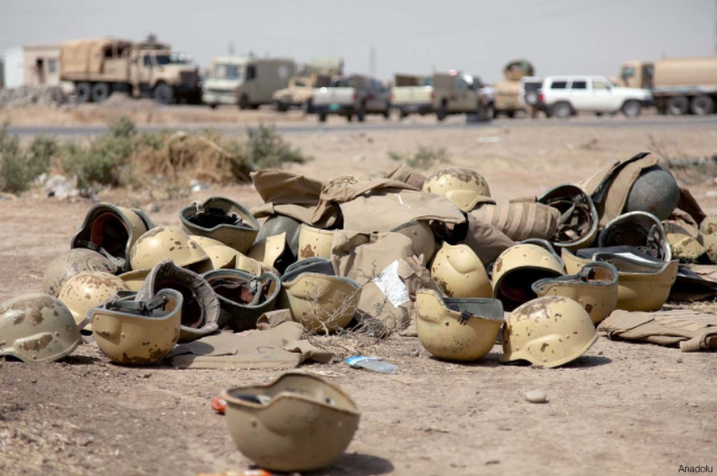Fallujah: what is unknown about this city is that it differs from the majority of other Iraqi cities and that it is located approximately 40 kilometres west of Baghdad. The mosques have found their place among the houses of the city and they are so great in number that Fallujah is now known as the “mother of mosques”, being home to more than 100 mosques; the perimeter of the city does not exceed 30 kilometres.
When the Americans invaded Baghdad in the spring of 2003 the shock was intense for all, whether it was the Iraqis who set eyes on a tank headed for their capital for the first time, or even the rest of the Arab and Islamic world as they saw the occupation of one of the region’s most influential capitals. While it is true that Iraqi resistance was quick to form in the face of the new invaders — many have called it the fasted growing resistance in history —it was still not enough to revive and protect the dignity of the Iraqi and Arab peoples when American tanks entered Baghdad on 9 April 2003.
The people of Fallujah protested against the occupation of Iraq for nearly a year in an effort to regain the balance of everyday life and the dignity of the city. At the time of the invasion of Iraq, the plan to divide the country was already on the invader’s table. Nothing was missing, not even the means to implement the project. Twenty-five million Iraqis were subsequently divided into Sunni, Shia, Kurds and other minorities. Even so, Fallujah stood as a reminder to all Iraqis that the path to resistance was ongoing and that national unity remained a goal. In the spring of 2004, Fallujah was the first Iraqi city to free itself from the US occupation after a battle that lasted 33 days. American forces used all of their energy to try to reclaim the city and failed.
Months went by and Fallujah became a liberated city within an occupied country. It became a bubble that governed itself. It frustrated all of the invaders who stood beyond the city boundary, subjecting them to humiliation and shame. The US used all of its forces and brought Tony Blair’s forces with it, including those who were trained in Iran. All of them wanted to take revenge on the city by testing out weapons that had never been used before. The results left the bodies of the victims completely destroyed or melted; not even their bones remained.
Today, years later, Fallujah finds itself, once again, the prey of evil beings who wish to retaliate for its steadfastness. They continue to use the same argument time and again; that the city is harbouring terrorists. This has been the excuse for everything since 2004 when it was believed that Fallujah was harbouring Al-Qaeda leader Abu Musab Al-Zarqawi. Since the beginning of 2014, Fallujah has been transformed into the city of death. Every day it is bombarded under the pretext of fighting Daesh. What the media and the international community continue to ignore is the fact that the city is home to 150,000 civilians who refuse to leave the city out of fear that they will be subject to government blackmail in Baghdad.
Despite today’s constant violence in the city, many of the inhabitants of the neighbouring city of Ramadi have sought refuge in Fallujah. From the perspective of those fleeing, it is more dignified to go to Fallujah then to stand on the bridge to Baghdad awaiting mercy. Today Fallujah is being bombed and the world continues to see only what it wants to see. It is important for us to remind the people across the Arab and Islamic world that this city, which is bombed every day, was once a symbol of honour and resistance. It is in need of more than a prayer or a loaf of bread because the people of Fallujah are fighting for their lives and paying the price with the blood of their children. That is the dearest thing that can be offered to this steadfast city.
Translated from Al-Araby Al-Jadid, 1 December, 2015
Source https://www.middleeastmonitor.com/articles/middle-east/22685-fallujah-is-being-slaughtered-silently


 RSS Feed
RSS Feed